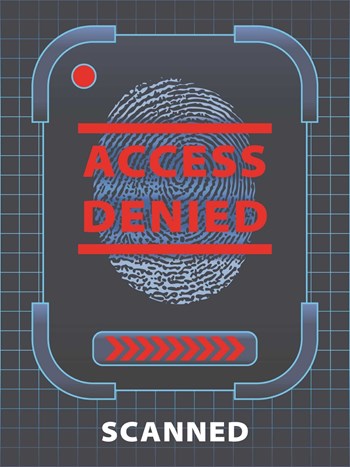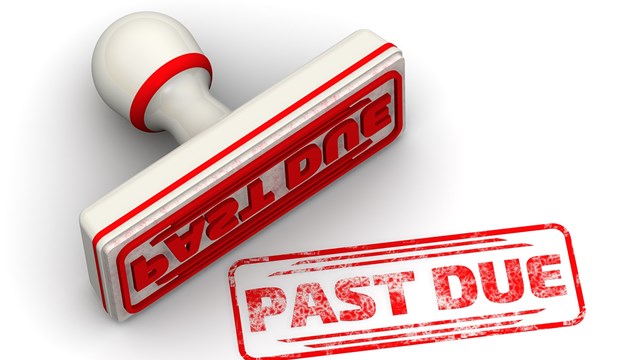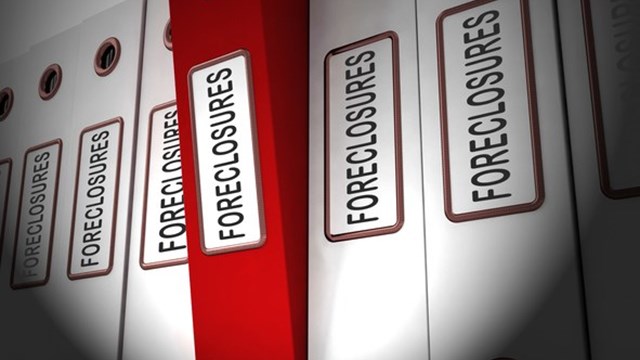
By and large, a board and management company can expect payment from residents for monthly fees to be received on time and in full. These all-important funds keep day-to-day operations moving forward without delay. There are situations, however, that arise which can offset the balance sheet. Circumstances run the gamut but in the end, monies that can’t be collected end up costing a whole lot more than the losses they represent.
There are many reasons residents cite for nonpayment of their monthly dues and assessments: unemployment, other unexpected expenses or sheer forgetfulness. But the most common reason cited is that someone in the family isn’t working because they’re sick, says Marshall Dickler, an attorney with the law firm of Dickler, Kahn, Slowikowski & Zavell, Ltd. in Arlington Heights. Another common reason for arrears is a divorce or separation that leaves a resident short of cash. In the case of elderly residents, isolation and forgetfulness may play a role. In the worst case scenario, a resident may have died without a person appointed (or willing) to handle their estate.
“After that, it usually is something like money management, where the owner has built up debt and can’t juggle or make all of their payments,” Dickler says. “Believe it or not, we see a tremendous amount of this in January and February, after Christmas purchases that can’t be paid for with savings or cash flow.”
Since the economic implosion of 2008, many industry professionals point to unemployment as a major factor in non-payment of fees, assessments and common charges.
It is true that the economy has played a major role in not only late payments but the ability for some people to make their payments at all. This is due, in part, to high jobless rates. For example, according to the Illinois Department of Employment Security (IDES), Chicago's unemployment rate remains near percent, compared to a national rate which, as of March 2012, is at 8.2 percent.
The way in which a board determines how to handle collecting monies that are past due is always different as respective bylaws dictate the course of action. In most situations there is a grace period between five and 15 days after the payment is due which is usually the first of the month. To this end, most boards will assume that there will be a percentage, albeit small, of deadbeats who will not make payments which impacts the rest of the community. This is considered an unfair charge to residents that faithfully pay their dues.
Suspension of Privileges
Several steps can be tried to get the unit owner to pay including in some states, suspending privileges and taking away amenities such as parking. Some states, like Florida, for instance, have provisions codified into law allowing homeowner associations to suspend common area privileges. Illinois law, however, differs.
“The question arises often of whether or not an association can limit an owner’s rights if that person fails to timely pay assessments,” says David Hartwell, a partner at the Chicago-based law firm of Penland & Hartwell. “In Illinois, the simple answer is no. If a person maintains ownership in a unit—that is the only qualifier for possessing all rights of an owner as conferred by the association’s declaration and the Illinois Condominium Property Act (“Act”). Moreover, the Act prohibits associations from enacting rules or policies, which create two different classifications of ownership. In this case, disallowing an owner from using certain amenities based on timely payment of assessments would improperly create two different classifications and therefore would not be consistent with the intent of the Act.”
“Boards often argue that it is unjust and unfair for delinquent owners to continue to be able to enjoy all of the amenities and privileges of paying owners; however this is the requirement of Illinois law. Delinquent owners are permitted to run for and serve on the board of directors, serve of committees, utilize parking, use the pool and exercise facilities, and all other common amenities. If adverse action is taken against a delinquent owner, claims of discrimination often arise, which may be costly to defend. Boards should focus on aggressive and uniform collection policies to minimize delinquencies.
There are considerations however, “Most management companies recommend the same timeline,” Dickler says, explaining that anything short of two months doesn’t give the unit owner much opportunity to find a way to pay their assessments, while anything longer may expose the association to major loss. And while the associations typically don’t grant a grace period if someone becomes unemployed or ill beyond the 60 days, they may if there is some effort to pay a partial amount of the assessment, or if there is a large arrearage and the owner begins paying current charges and some amount toward the arrearage.
Dickler says the board of directors are the only ones who can decide if there is any arrangement they want to make due to special circumstances. “The problem here however, is that the association is not a charity,” Dickler says. “Typically, board members have a fiduciary duty to collect assessments. That is absolutely true in Illinois. They cannot defer collection of assessments and impose that burden on other owners.”
Mediation Before Litigation
While most boards have an attorney on retainer, they depend on their management company to keep them apprised of any delinquencies. This communication chain of command can add more time to the situation. For example, if a resident misses a payment, the management company will normally not send a notice to that resident until the grace period is over, and in some cases will wait weeks longer. The management company will inform the board at the next monthly meeting. So before any action can be considered, and providing the resident didn’t make good on the first missed payment, the delinquent resident will likely have missed two payments before any serious action is taken.
“Common problems are people losing their jobs or claiming bankruptcy and the management company are the ones that have to be aware of the reason that payments are not being made,” says Albert M. Kushnirov, CPA and president of New York-based Greenberg & Brennan, CPAs, P.C. “We are seeing more of this in the last couple of years. And when it comes with how a board will deal with the situation, everyone is different. It is like every board is a different country with different rules and customs.”
In Kushnirov’s experience, “the collections process is a very long road.”
Depending on the board, the rules for collection of delinquent fees are usually covered in the bylaws or “house rules,” the propriety lease, the offering plan, or management policy. Boards generally prefer that if a written notice doesn’t spur activity to have the management company call the resident directly. Eventually, if these steps don’t yield a response, an attorney should be contacted to draft a similar letter with the threat of legal action citing relevant provisions of obligations in the controlling documents.
While banks and lending institutions penalize a person for being late on a car loan payment or credit card payment with a late charge, boards often do not. Their main goal is trying to recoup monies lost and up and until legal counsel is brought into the picture, they look to remedy the situation with as little cost as possible.
Most boards do not have a lot of extra money and they do not want to spend money on attorney unless they have to. If a resident is $1,500 or $3,000 behind, boards are not going to be so inclined to spend hundreds of dollars on a lawyer to try and collect it. It is more likely they will wait until that tenant or condo owner become so delinquent—several months—that the amount of money in controversy is more relevant for purposes of a legal dispute.
During this time period a board that is experiencing a shortfall of funds maybe be forced to conduct a special assessment to make ends meet, especially in this economic climate explains Kushnirov. “During debt collection proceedings, a few times we have seen condominiums activate a special assessment to make up for the monies lost.” While this decision is made usually in conference with the management company, Kushnirov said he offers support in the event they are “ready to move forward.”
Ultimately, the old adage of a few bad apples upsetting the apple cart is realized. Residents are not without recourse in that they can request information from the board as to who is not making payments. They are not allowed to harass the delinquent party but due to governing laws; they are entitled to know why a special assessment was executed and why their monthly dues increased.
Fair Collections
If legal action is taken, it can take months if not over a year for the case to be settled. During this time period, the resident in question can be subjected to restrictions such as removal of parking privileges, the use of common areas or recreational areas; however, this is often hard to enforce and requires additional oversight and expense in the way of staff that is usually not available. It is the board and the management company that determines how these types of situations are handled and often also involves an attorney.
The nation’s consumer protection agency, the Federal Trade Commission (FTC), is the entity that enforces the Fair Debt Collection Practices Act (FDCPA). This prohibits debt collectors from using abusive, unfair, or deceptive practices to collect from a delinquent party. Under the FDCPA, a debt collector is defined as a person who regularly collects debts owed to others and includes collection agencies, lawyers who collect debts on a regular basis, and companies that buy delinquent debts and then try to collect them, notes the FTA. This has basically created a codified moral and ethical means of the collection of debts and created a heightened awareness for collections and this applies for condo and co-op owners in the Chicagoland area.
Since condominium owners and co-op owners have a different ownership structure, in many cases, Kushnirov explains that the former will continue to pay their mortgage payments but lapse on their monthly fees. “To avoid getting in trouble with the bank, condo owners will continue to pay them but not their monthly fees. This happens on a regular basis.”
In the final analysis, large arrearages can be dealt with in an extreme manner for it can become an issue of foreclosure on that unit by the board. This proceeding is far more time costly and time consuming with a six to 18 month window depending on the site, the judge and the parties involved.
W.B. King is a freelance writer and a frequent contributor to The Chicagoland Cooperator.






Leave a Comment